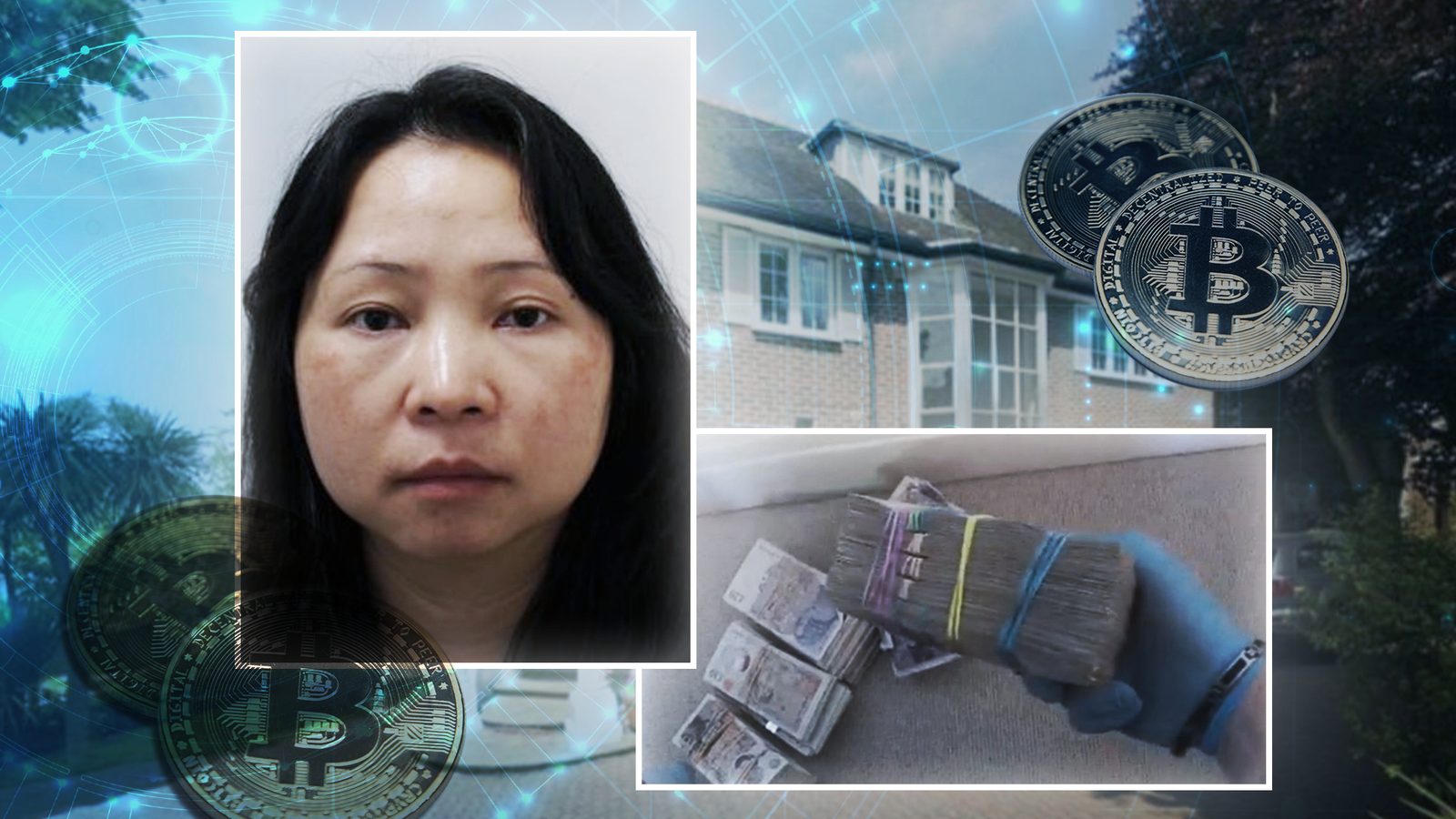Within weeks of Yadi Zhang’s arrival in London in September 2017, Jian Wen had left her job and room in a Chinese takeaway and moved into a £5m six-bedroom house near Hampstead Heath.
The women, who claimed to run an international jewellery business trading in diamonds and antiques in countries including Japan, Thailand and China, travelled the world and spent tens of thousands of pounds on designer clothes and shoes in Harrods.
In her newly affluent lifestyle, Wen bought a £25,000 E-Class Mercedes and sent her son to the £6,000-a-term Heathside preparatory school.
But alarm bells rang when she tried to buy some of London’s most expensive properties, including a £23.5m seven-bedroom Hampstead mansion with a swimming pool and a nearby £12.5m home with a cinema and gym.
Wen, who had declared income of just £5,979 in the 2016/17 financial year, could not explain the source of the Bitcoin she would use to pay for the properties and police first raided the women’s home on 31 October 2018.
But it would be another two-and-a-half years before investigators realised they had made the UK’s biggest-ever cryptocurrency seizure when more than 61,000 Bitcoin were discovered in digital wallets.
The cryptocurrency was worth £1.4bn at the time but its value has now risen to more than £3bn, while 23,308 Bitcoin, now worth more than £1bn, linked to the investigation remains in circulation.
The £5bn investment fraud
The Bitcoin came from a £5bn investment scam carried out in China by Zhang, 45, who arrived in the UK on a false St Kitts and Nevis passport after conning nearly 130,000 Chinese investors in fraudulent wealth schemes between 2014 and 2017, a court heard.
Zhang, who is also known as Zhimin Qian (which means money in Chinese) has fled the UK and her whereabouts are unknown.
Wen, 42, has been found guilty of one count of money laundering between October 2017 and January 2022 and the jury failed to reach verdicts on two similar counts following a trial at Southwark Crown Court.
Prosecutors are not seeking a retrial and Wen will be sentenced on 10 May.
She was acquitted of 10 other money laundering charges at a trial last year, which could not be reported over fears hackers could target the firm holding the seized cryptocurrency if the figures involved were made public.
As a Category A prisoner, Wen, a small woman wearing large round glasses, was led to the witness box in handcuffs, while two dock officers guarded the door as she gave evidence.
She told jurors she grew up in a working-class family in China, where she met her husband Marcus Barraclough before coming to the UK while heavily pregnant on a spousal visa in 2007.
Wen’s lifestyle change
The relationship broke down following the birth of their son and she lived a modest lifestyle in Leeds, where she took a law diploma and completed a BA in economics before moving to London in the summer of 2017.
She had already opened cryptocurrency accounts, making meticulous notes in her Wallace and Gromit notebook, but said she had “no idea” she would soon be dealing with Bitcoin on such a “massive scale”.
She applied for dozens of jobs while working in a Chinese takeaway in Abbey Wood, southeast London, where she lived in a room below the restaurant.
Wen said she saw an advert on Chinese social media app WeChat for a “butler” and first met Zhang at the five-star Royal Garden Hotel in Kensington. She later described her role as “live-in PA for a high net worth individual” on her CV.
The women soon moved into a £17,000-a-month Hampstead home after paying a £40,000 deposit and six months’ rent in advance.
Wen took trips to Thailand and Dubai and the women travelled extensively throughout Europe, with Zhang – who used aliases including Rose, Emma, and Hua Hua – avoiding countries with Chinese extradition agreements.
Hampstead mansions and a Tuscan villa
They sold Bitcoin and bought fine jewellery, with receipts found for £25,600 and £18,750 from Christopher Walser Vintage Diamonds, in Zurich, and two watches worth around £49,300 and £69,900 from Van Cleef & Arpels in Switzerland.
Over a three-month period at the end of 2017, more than £90,000 was spent in Harrods on designer women’s clothes, jewellery and shoes using a rewards card in Wen’s name, although she told jurors: “I was the one carrying the bags.”
Wen bought two apartments in Dubai for more than £500,000 and looked into buying a £10m 18th century Tuscan villa with a sea view.
But efforts to buy multimillion-pound properties in London triggered anti-money laundering checks and none of the purchases went ahead because the source of the Bitcoin could not be explained.
Wen initially claimed the cryptocurrency had been mined, then said it was given to her as a “love present”, drawing up a deed of gift stating she had been given 3,000 bitcoin, then worth £15m, by Zhang.
Be the first to get Breaking News
Install the Sky News app for free
Prosecutors said Wen acted as a “front person” to help disguise the source of the stolen money, which had been used to buy cryptocurrency to remove the proceeds from China.
‘I was duped’
Gillian Jones KC said when Zhang landed in London she needed to convert the Bitcoin back into cash or “property, jewellery or other high-value items”.
Wen accepted she was involved in an arrangement dealing with some of the cryptocurrency but said she did not know or suspect it was from the proceeds of crime, claiming she was “duped” by the woman she called her boss.
“We were close… but looking back now, I was badly used,” she said. “I have no idea where she is.”
Police say they are still actively looking for Zhang.






